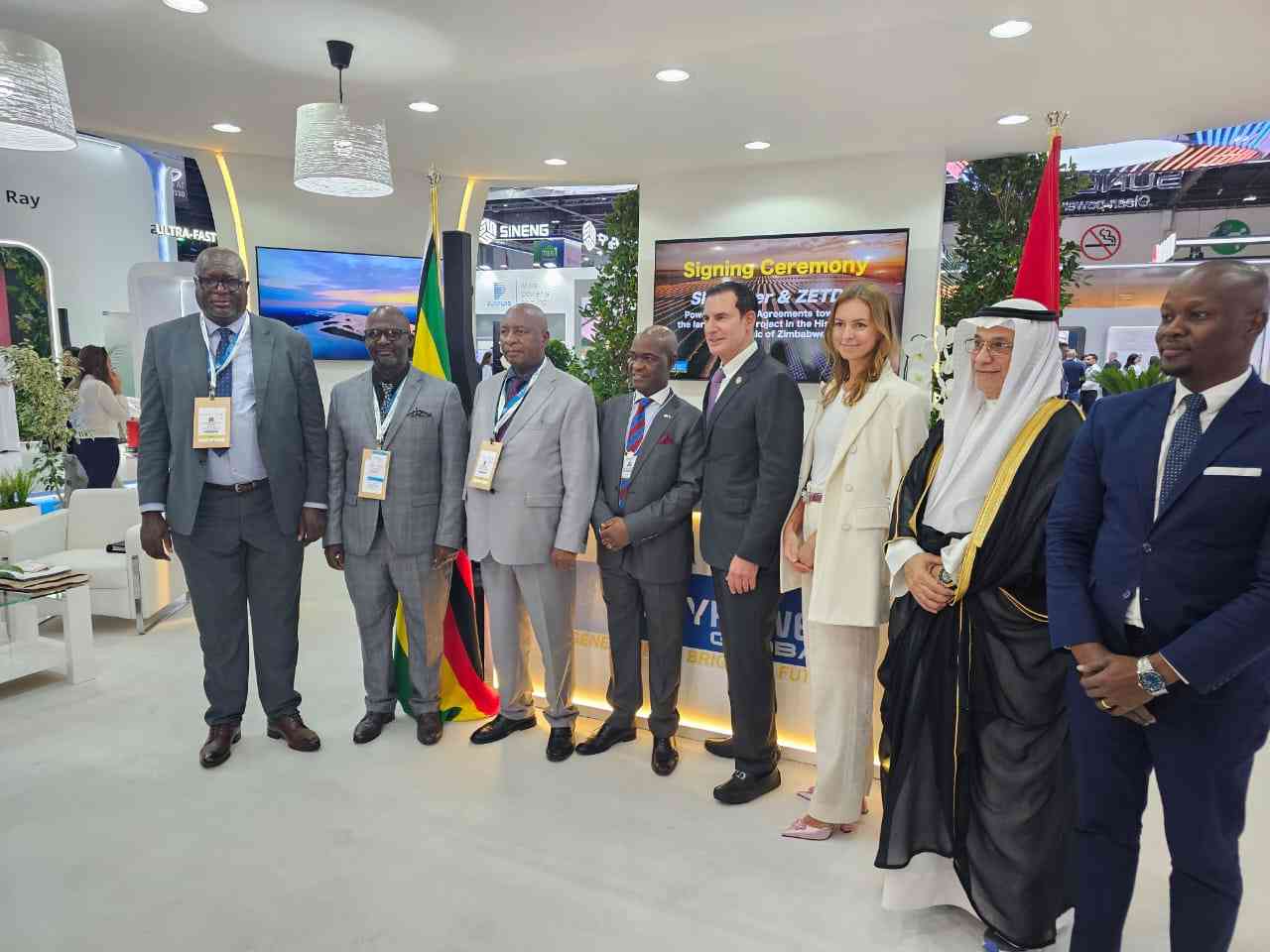
THE Zimbabwe Electricity Transmission and Distribution Company (ZETDC), a subsidiary of Zesa Holdings, yesterday signed a power purchase agreement with United Arab Emirates-based energy company Skypower to establish solar power plants that generate 300 megawatts (MW) of energy.
The agreeement was signed yesterday in Abu Dhabi at the World Future Energy Summit, which was attended by Energy and Power Development minister Edgar Moyo and officials from his ministry.
“The solar power plants will directly feed into our national grid,” Moyo said during the signing ceremony.
“This collaboration is a beacon of our dedication to enhancing energy security, achieving self-sufficiency and transitioning towards a green economy.
“The genesis of this transformative partnership began at COP27 in Sharm El Sheikh, where we signed a memorandum of understanding with Skypower for the development of 500MW of solar power.
“Today, we are not just advancing this agreement but also cementing our shared commitment to a sustainable and prosperous future.”
Moyo said the solar energy project was a step forward in government’s efforts to combat climate change and reduce carbon emissions to ensure a sustainable planet for future generations.
The project involves the construction of three major solar power plants — 100MW solar plant in Manhizhe, Midlands province, 70MW in Mazowe district, Mashonaland Central province and 130MW in Matobo district, Matabeleland South province.
- Chamisa under fire over US$120K donation
- Mavhunga puts DeMbare into Chibuku quarterfinals
- Pension funds bet on Cabora Bassa oilfields
- Councils defy govt fire tender directive
Keep Reading
ZETDC acting managing director Abel Gurupira said the national grid was prepared to handle this new inflow of solar power.
“Our market demand reflects a significant shortfall, which these projects will help alleviate,” he said. “The market is, therefore, ready to take up this power. On financial readiness and cost reflective tariff, ZETDC has established a cost-reflective tariff, ensuring that we have the capacity to pay for the power generated. This financial readiness is key to the sustainable success of the project.”










